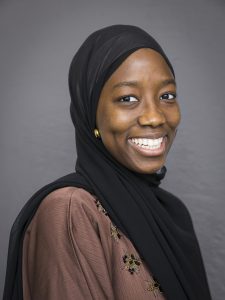By Peter Wright
The Mac Weekly: What drew you to Macalester initially?Ann Minnick:.I have been at a small campus in New York for about the past 10 years, and this is home so I was looking… to get back here. I’ve long been interested in Macalester. The kinds of programs they have here, its commitment to civic engagement, internationalism, the way in which faculty and students are able to connect was very appealing to me, and even though I’ve been at two large research institutions before my experience at SUNY New Paltz, once I’d been there on a small campus where you really get to know everyone, you can develop personal relationships, I really wanted to be at a place like Macalester.
Is working at a private school different from what you’ve worked with in the past?
It’s more flexible. There’s a lot more opportunities than when you’re at a state school where you have to be worried about tax dollars and what things you can do and there’s a lot of rules and regulations.
For instance, take student travel or the speakers fund we have. You know, students can just come, or email us; their faculty can email us. Whereas when you’re at a state institution there’s many more forms and bureaucracy to go through, and sometimes that impedes students. Us being able to do what we want to be able to do for students.That’s really a nice benefit, sort of the immediacy of things we know will happen.
Let’s talk about the Academic Programs Office, just to get a general idea of what the office is here for.
What this office does is it provides a centralized place for the academic experiences for students that sort of transcend departments. So, this is where advising, supporting faculty adviser takes place, coordinating the first year courses, which is.how students are assigned to their advisers in the first year course, national scholarships, academic standing, the academic integrity, so a lot of the campus wide concerns that affect students are really housed in this office.
You talked about the more freedom, or at least fewer hoops you have to jump through here. Do you have any particular projects or goals you want to see happen while you’re in this position?
One thing that I’m interested in is having students see this office as a resource, not just something that.they don’t know what it is, they don’t know what it does, they don’t come here for help or for guidance, and I’d really like this to be a place where students come, not to replace the advice they’re getting from their faculty members and the mentoring they’re getting from their teachers but as an additional resource and support, a place where people can talk, [and] find out about opportunities, and just to help them sort of think about the way to make the most of their undergraduate career.
Obviously the college is having to think seriously about programs to cut in the next year or two to make ends meet and to make sure that get financial aid and students can afford to go here. Do you see that affecting your program at all yet?
You know, I think we’re fortunate enough that it’s really not going to affect this office too much because so much of the funds are really directed towards students, so student travel, speakers, honors convocation. The money that we have is really directed towards student activities, and that’s really going to be the focus of Macalester. I mean, that’s really where we want our money to be is supporting students. So, in terms of what our budget is, we tend to.come in under what’s been allocated to us anyway and function in a kind of a lean sort of administrative capacity so that most of the funds can go to the students and I think that even in lean budgetary times.that money is still going to be available because we want students to have the best experience possible.
Right, and I guess President Rosenberg did say that the focus of the college was still making sure students can afford to come here, and making sure the academics stay strong, and I guess that academics part would fall into your program.
I think most if it really became a problem, you know, maybe we’d be able to fund fewer students to go or travel, or fewer speakers. Or maybe not quite as nice departmental receptions in the spring. I think it would just be more around the edges. I don’t think it would really be something that would be noticeable because if students aren’t having a good experience here, then they’re not going to come here, and that sort of defeats the purpose.
Do you have any particular stories in your history of advising that have kept you going?
You know, when I was working in the honors division, the students were very much like the Macalester students- very interesting students doing wonderful, interesting thesis projects and what’s been great is being able to keep in touch with those students over time and so many of them now are now faculty members teaching at institutions .[One is] involved in art education in Chicago public schools.Connecting with them and.seeing the growth and development over time is I think probably one of the most rewarding thins that I have is to see where they were when they were students and what they’re doing now.-











